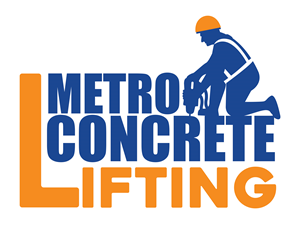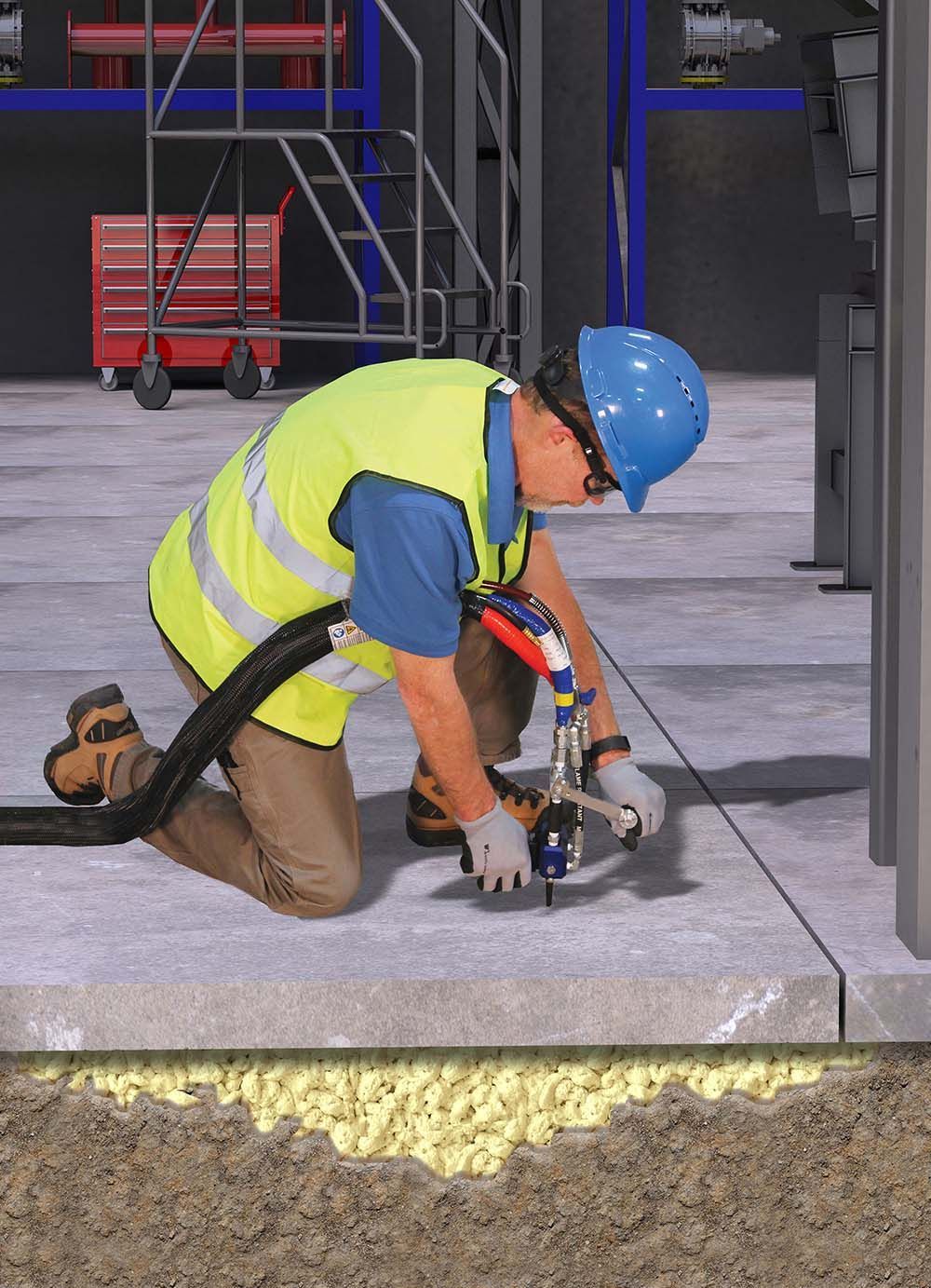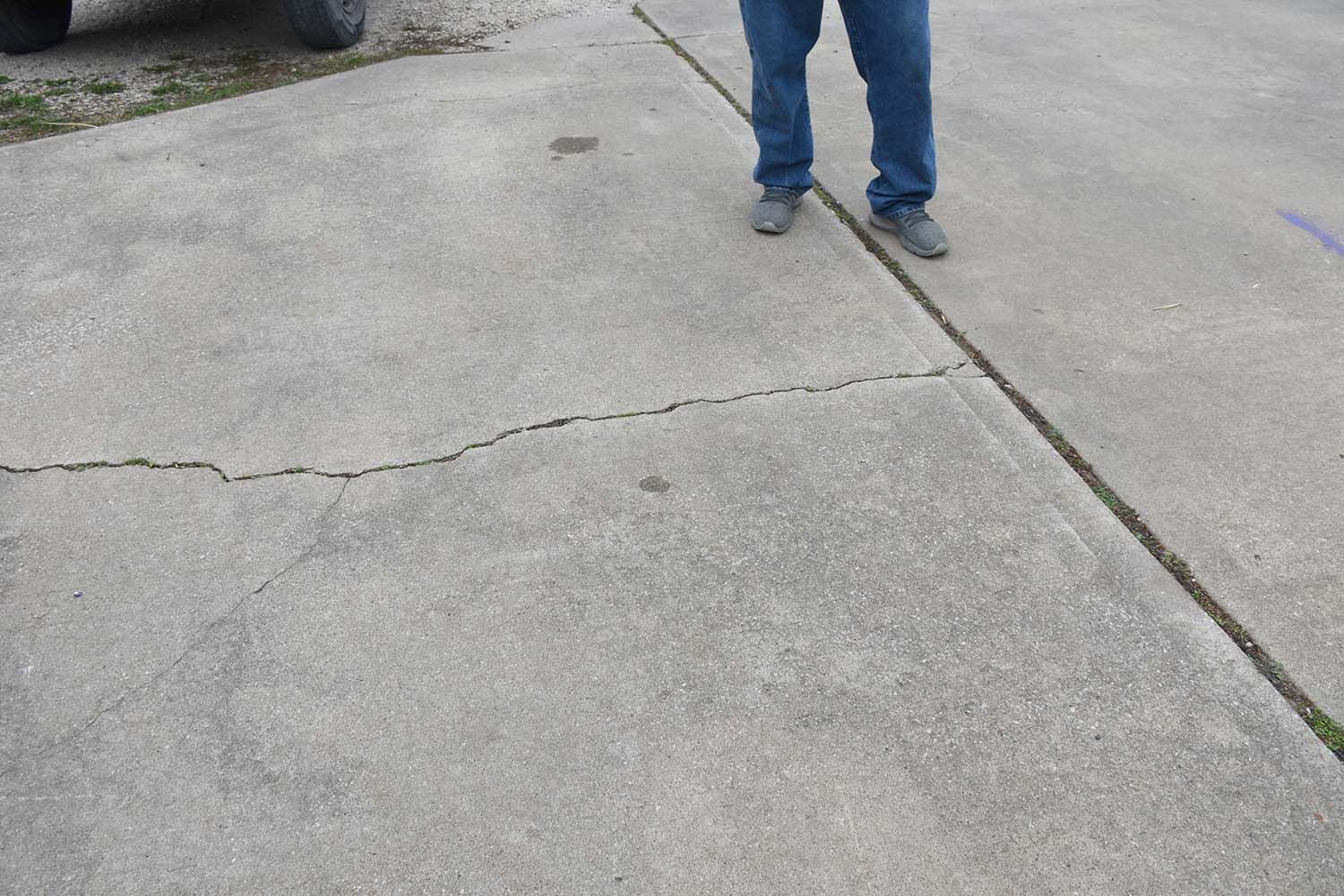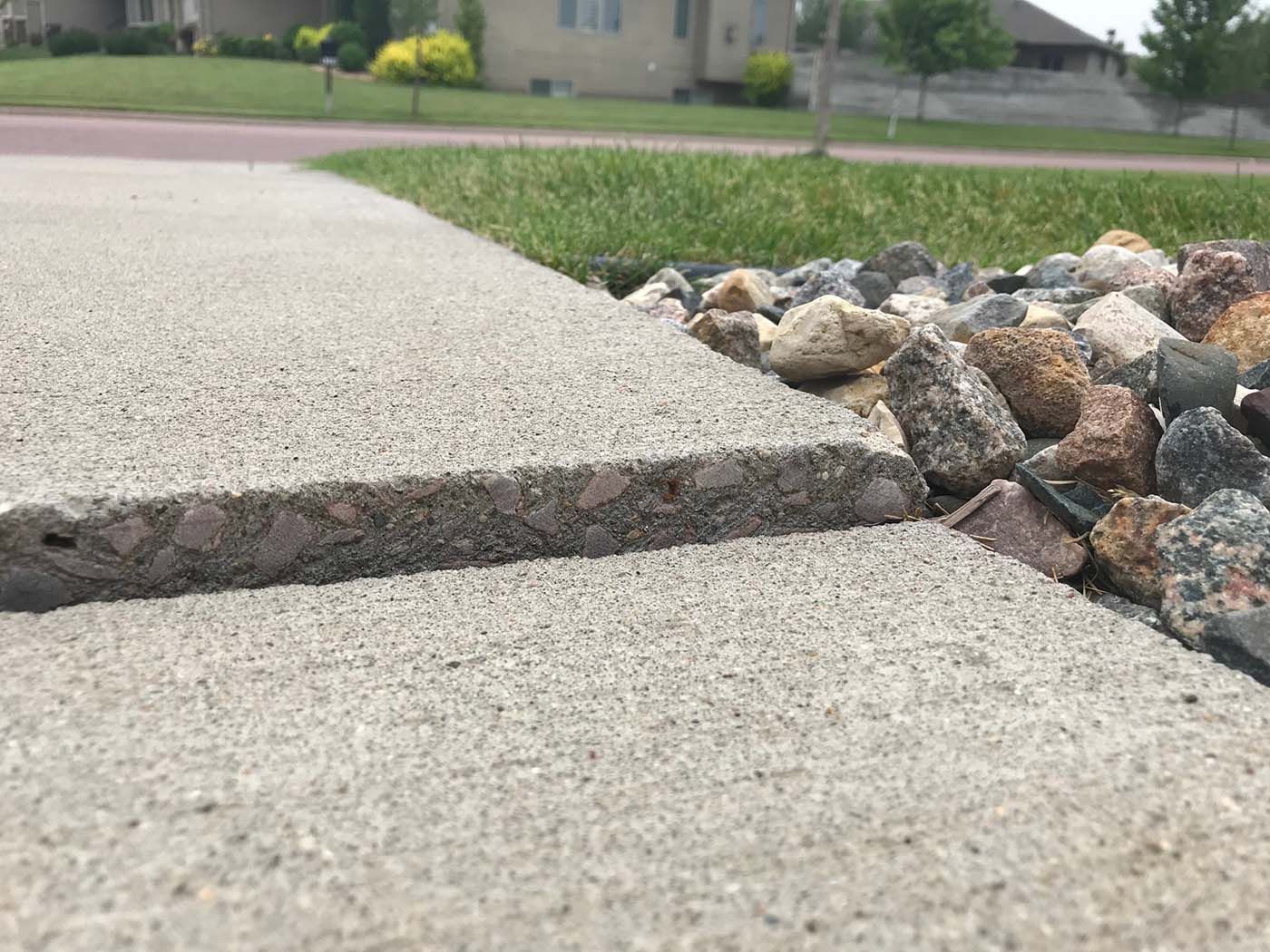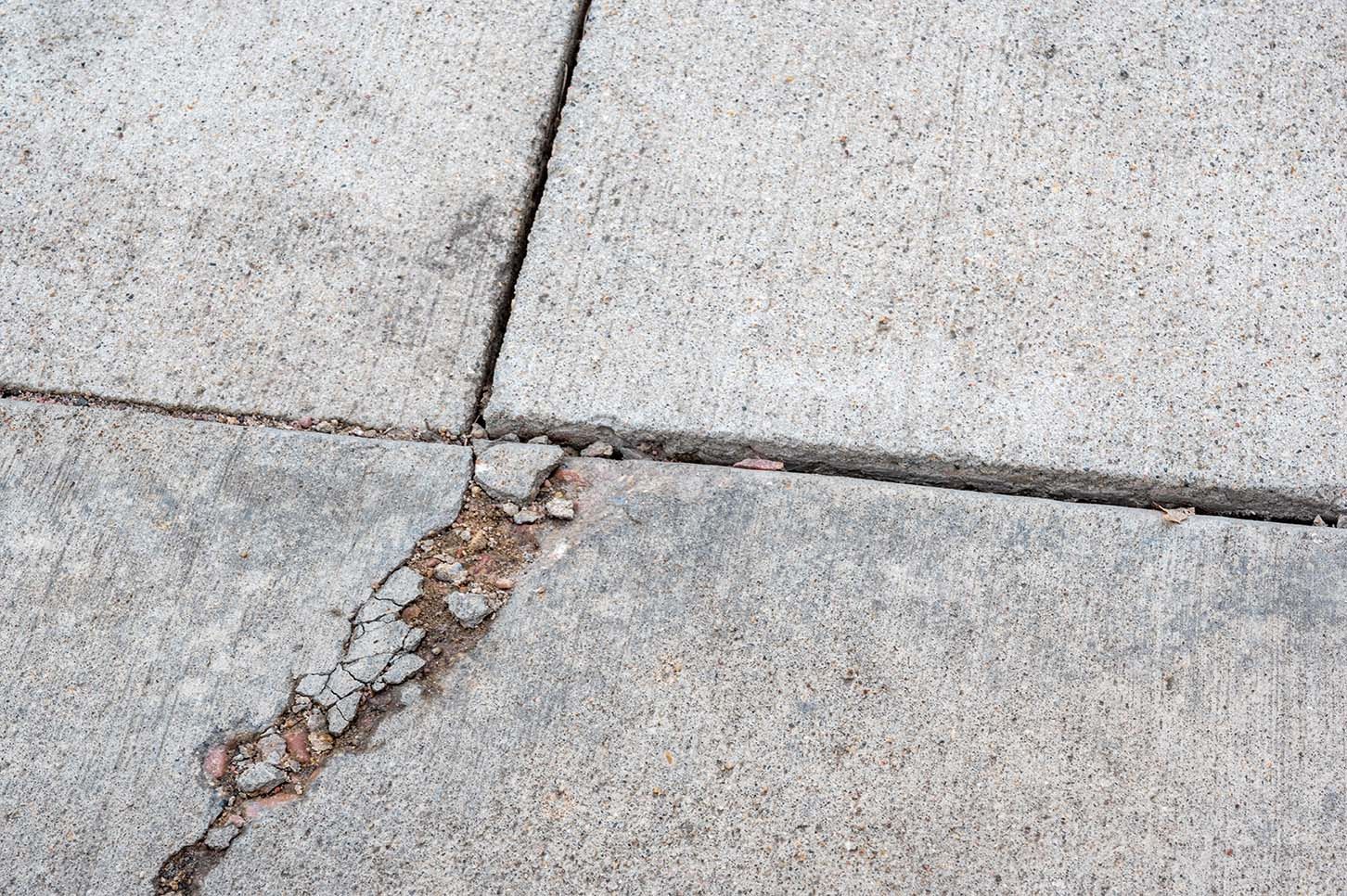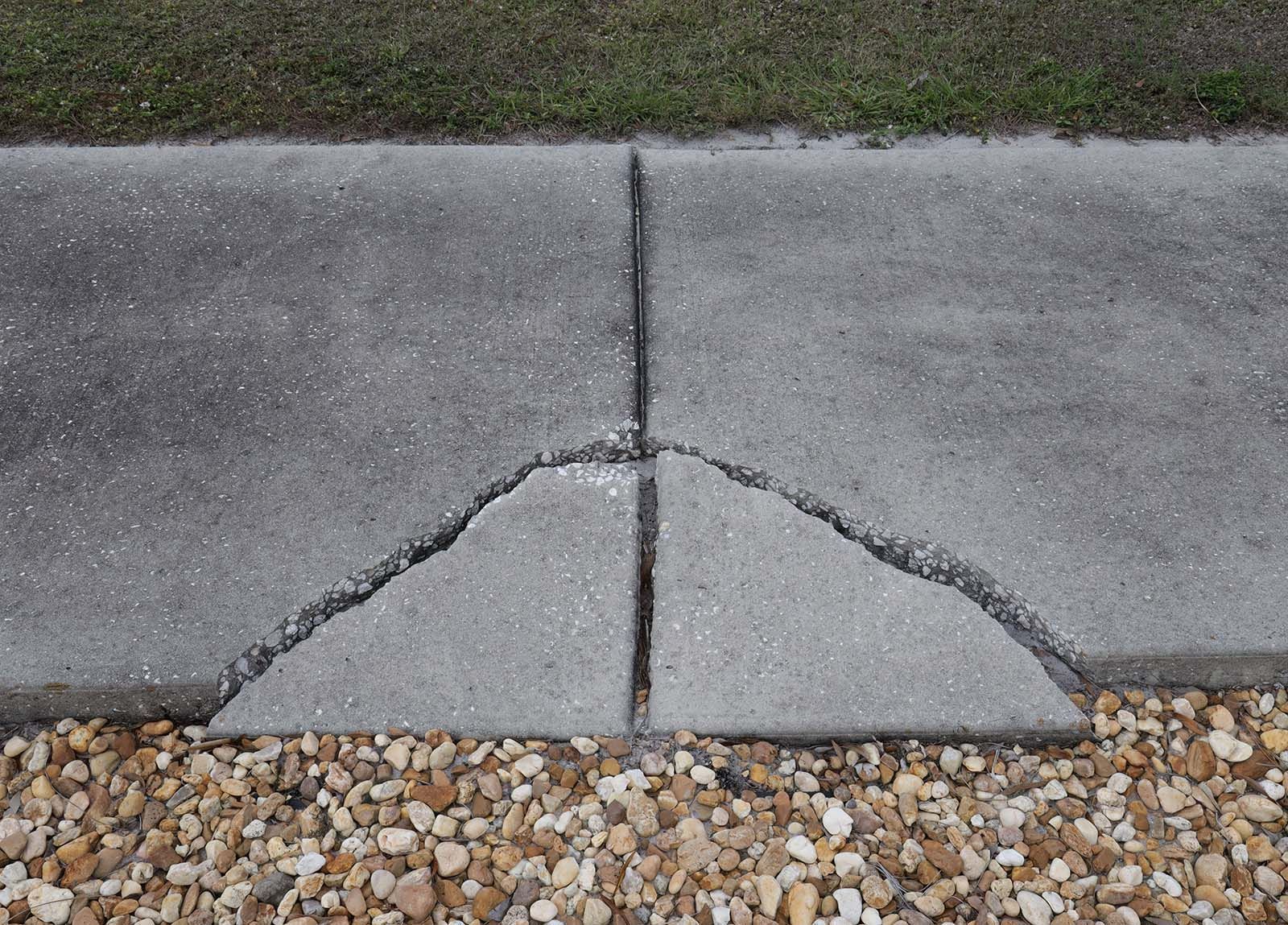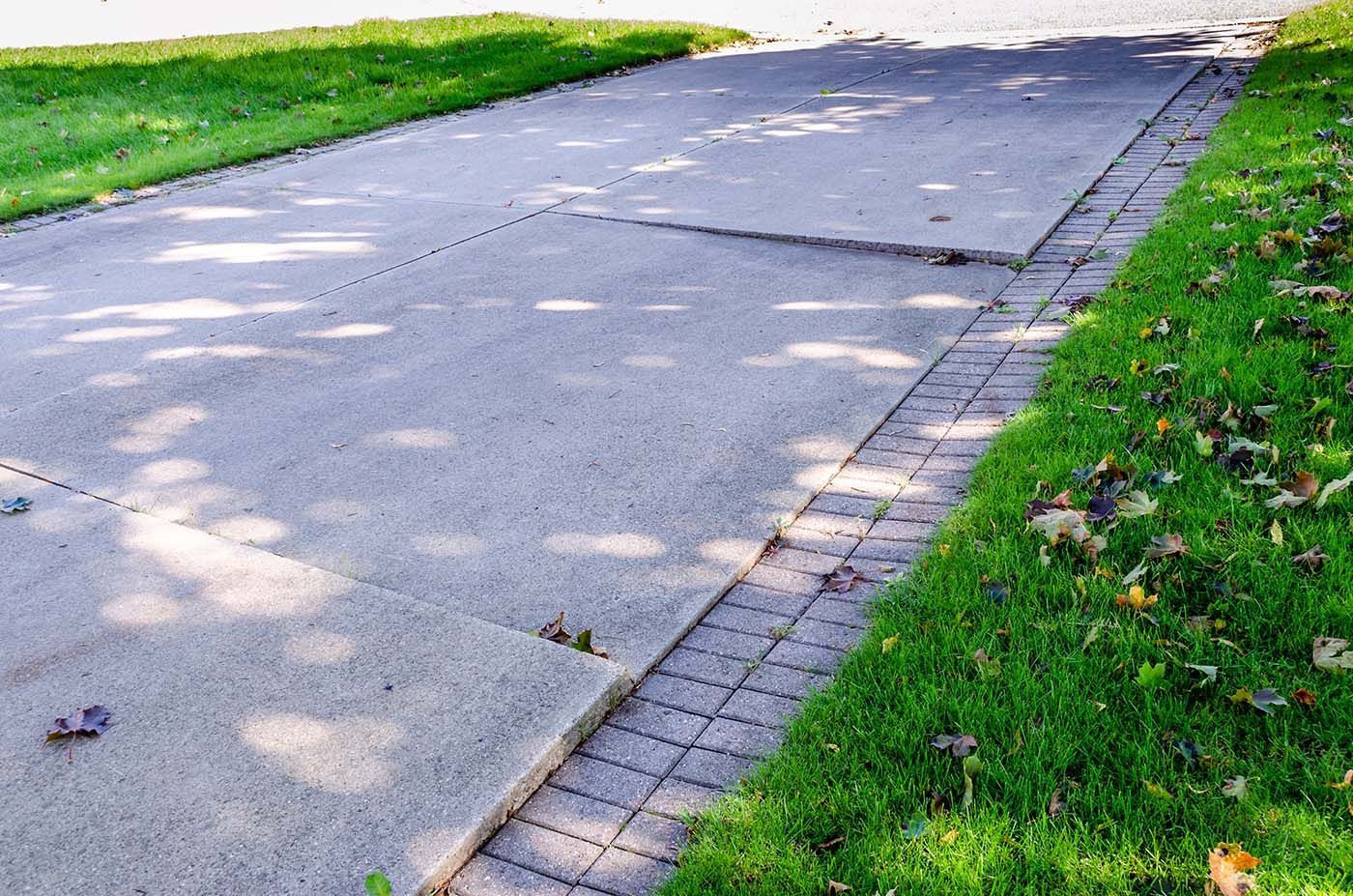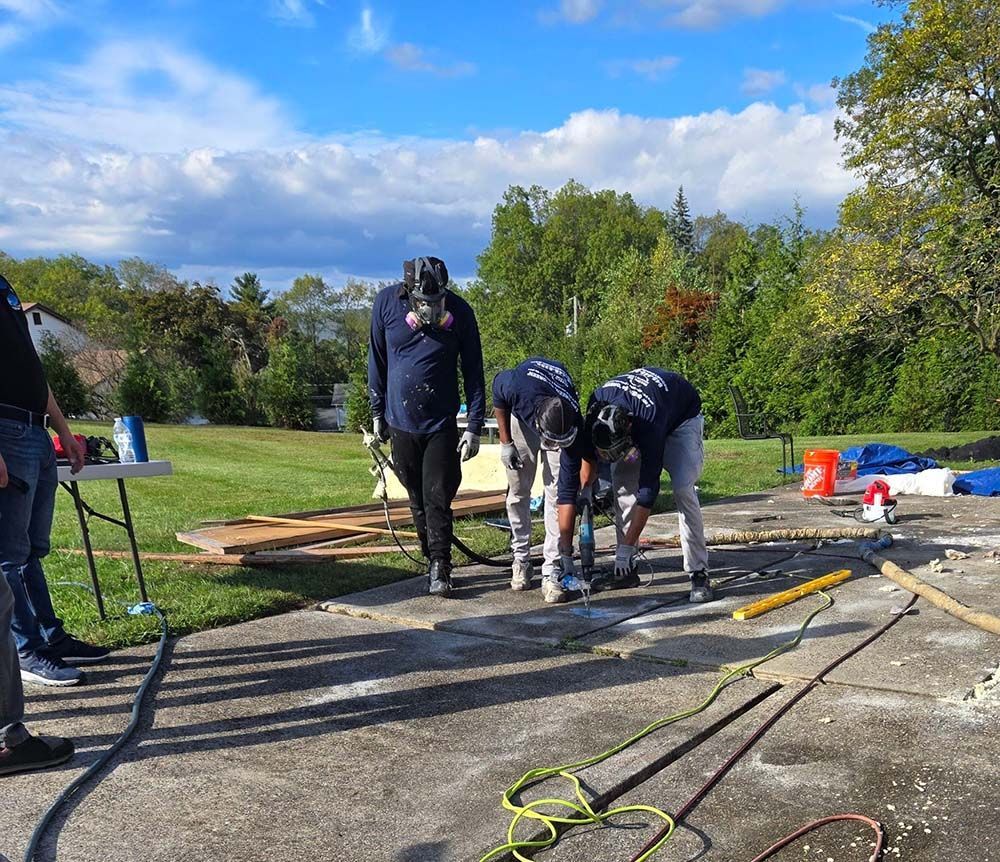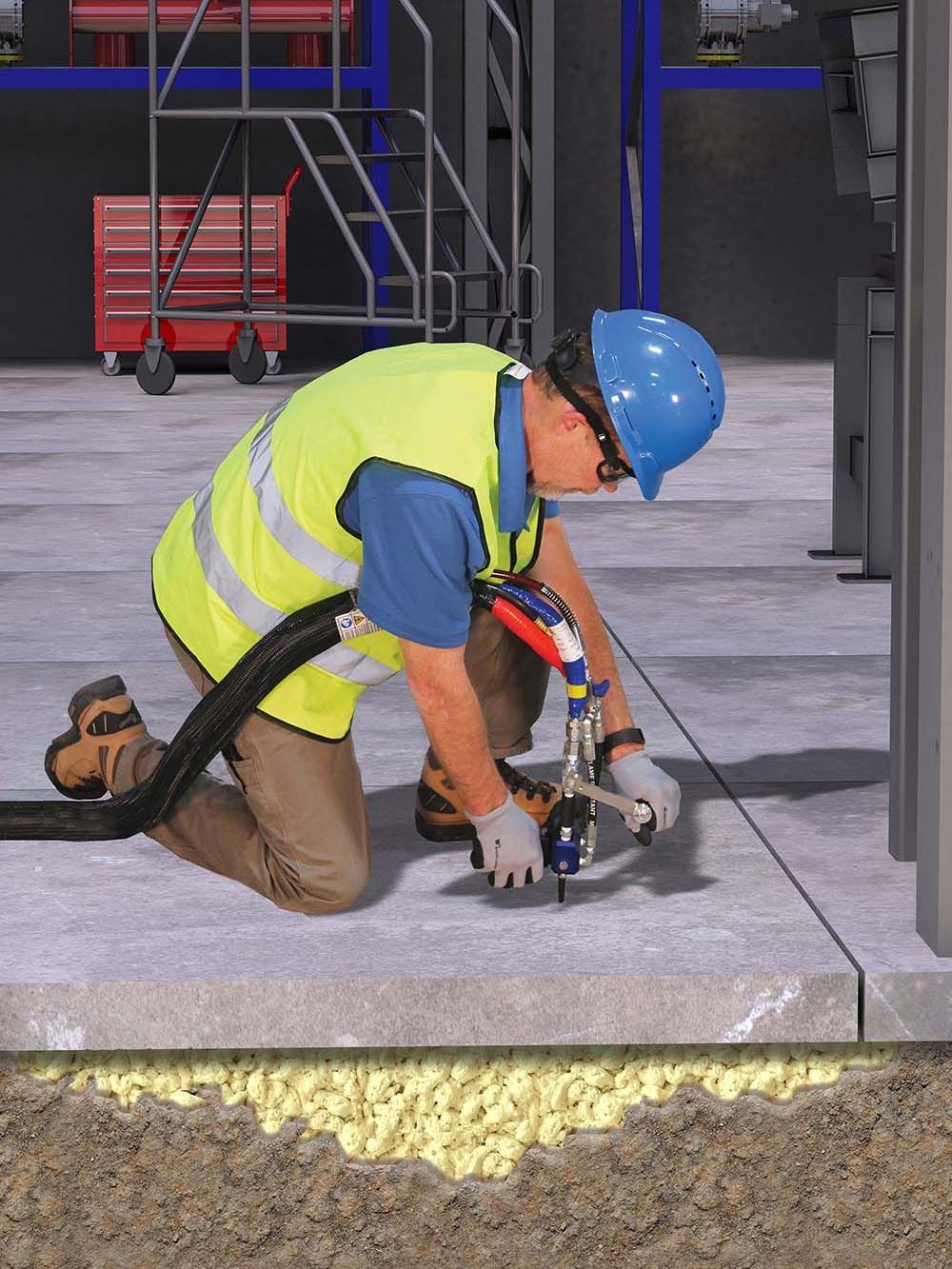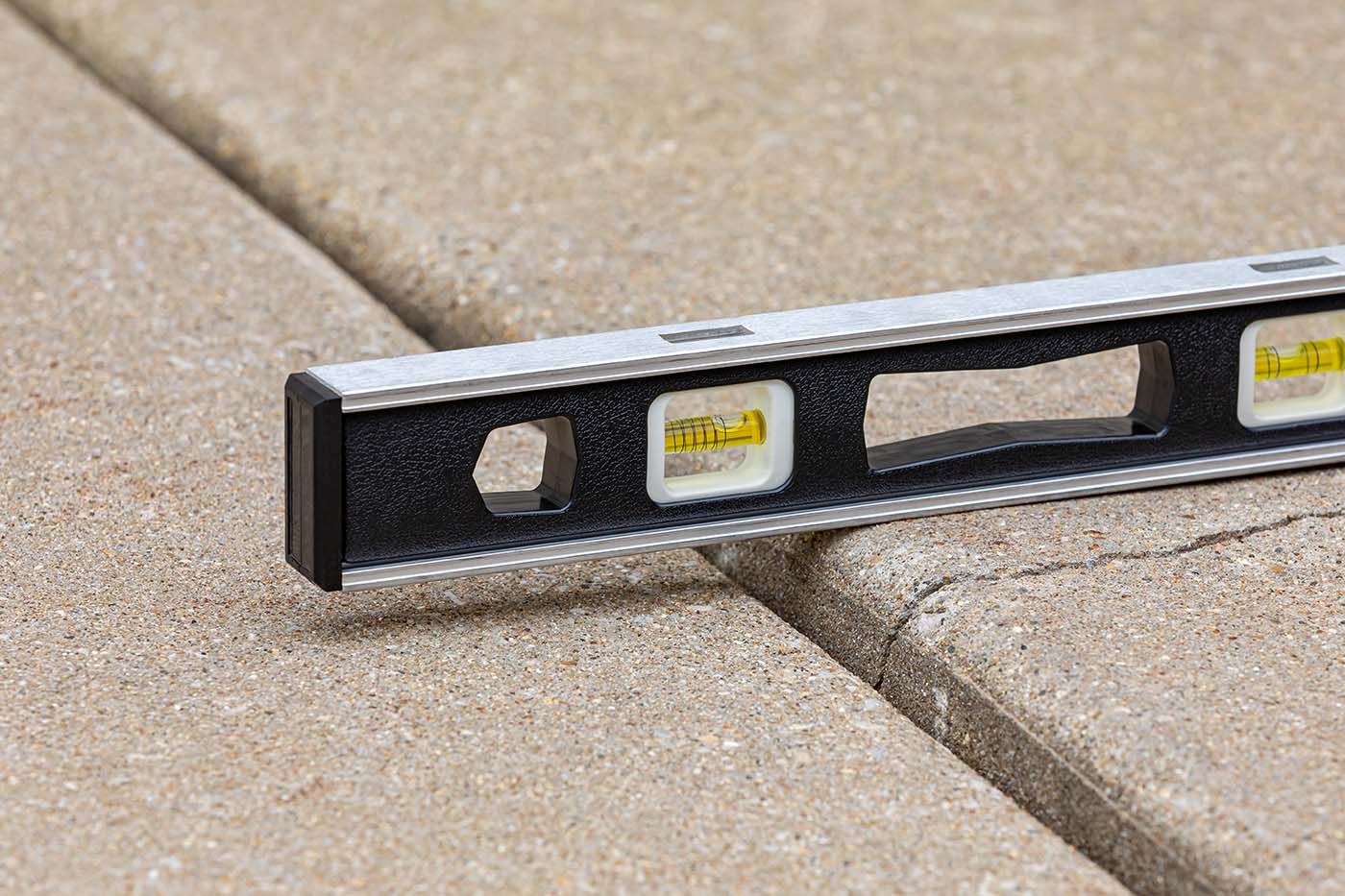Are Cracks in Concrete Slabs Normal?
Request A Free EstimateWhy Do Concrete Slabs Crack?
If you’ve noticed cracks in your concrete driveway, patio, or basement floor, you’re not alone—and you’ve come to the right place. Cracked concrete is a common concern, but not all cracks are created equal. Let’s talk about why cracks happen, when you should be concerned, and how our polyurethane foam lifting can restore your slabs to their original glory.
Concrete is durable, but even the toughest materials aren’t immune to a little wear and tear. Cracks can occur for several reasons:
- Shrinkage: As concrete cures, it shrinks slightly. This natural process can lead to hairline cracks that are usually cosmetic.
- Soil Movement: In New Jersey, Westchester, and the Lower Hudson Valley, fluctuating soil conditions are a big culprit. Expanding or settling soil beneath your slab can cause it to shift and crack.
- Temperature Changes: Concrete expands and contracts with temperature swings. Over time, this can create stress cracks.
- Heavy Loads: Driveways and garage floors take on significant weight. Overloading can lead to cracks, especially if the slab wasn’t properly reinforced.
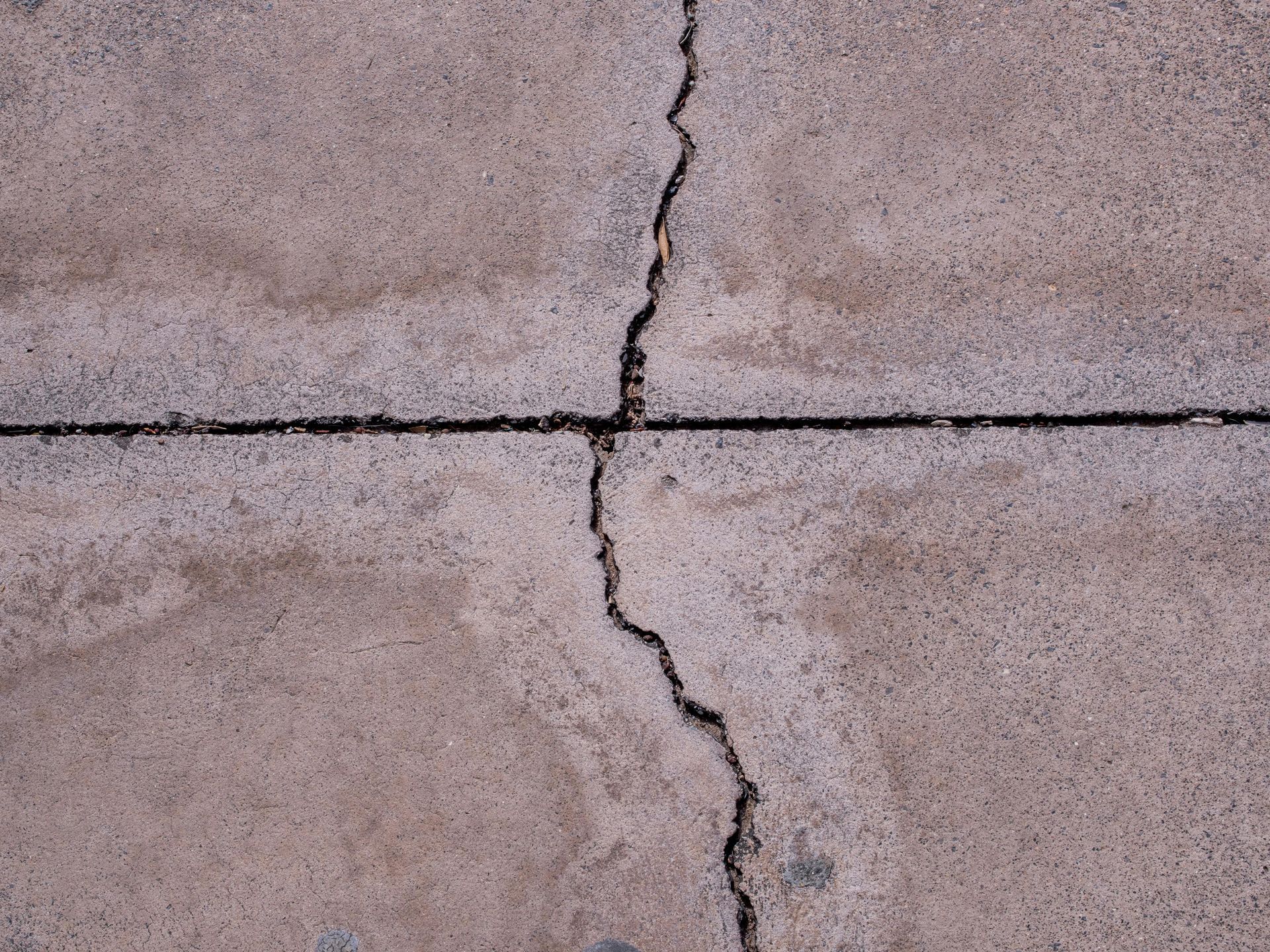
When Are Cracks in Concrete Slabs a Problem?
Not all cracks spell trouble. Small hairline cracks or those less than 1/8 inch wide are generally harmless. But larger cracks, uneven slabs, or signs of sinking could indicate underlying issues that need attention.
Here are some signs that a crack needs professional help:
- The slab is uneven or one side has sunk lower.
- Cracks are growing or widening over time.
- Water pools in or around the cracks.
- There’s evidence of soil erosion or voids beneath the slab.
If you’re dealing with these issues, don’t wait. Left unaddressed, they can worsen and lead to more costly repairs.
Our Solution: Polyurethane Foam Lifting
At Metro Concrete Lifting, we specialize in a game-changing solution called polyurethane foam lifting. Unlike traditional mudjacking or slab replacement, this modern method offers fast, effective results with minimal disruption.
Here’s how it works:
- Assessment: Our team inspects the slab to identify the root cause of the cracking or sinking.
- Precision Drilling: We drill small holes (about the size of a dime) into the affected slab.
- Foam Injection: Polyurethane foam is injected into the voids beneath the slab. It expands, lifting the concrete back into place and filling gaps in the soil for added stability.
- Finish: Once the slab is level, we patch the holes and clean up, leaving your space looking great!
This process is quick—most jobs are completed in a single day—and eco-friendly. Plus, polyurethane foam is lightweight yet strong, preventing further sinking without adding strain to the soil.
Why Choose Metro Concrete Lifting?
We’re proud to serve homeowners and businesses across New Jersey, Westchester, and the Lower Hudson Valley. When you work with Metro Concrete Lifting, you’re getting:
- Expertise: Years of experience in concrete leveling and repair.
- Local Knowledge: We understand the unique soil and weather conditions in our area.
- Customer Focus: Your satisfaction is our top priority.
Let Us Help You Fix Those Cracks!
If you’re dealing with cracked or uneven concrete, don’t wait—contact Metro Concrete Lifting today. We’ll assess your situation and provide a free estimate for our polyurethane foam lifting services. Give us a call at (845) 445-8255 or fill out our online form to schedule an appointment.
Let us help you restore your concrete and give you peace of mind. We’re here to serve New Jersey, Westchester, and the Lower Hudson Valley with top-notch concrete leveling services.
FAQs About Cracked Concrete Slabs
Are cracks in concrete slabs normal?
Yes, small hairline cracks are common and usually not a cause for concern. However, larger cracks or those associated with uneven slabs should be evaluated.
Can cracks be repaired without replacing the slab?
Absolutely! Our polyurethane foam lifting process is a cost-effective and durable way to repair cracked and uneven slabs.
How long does the foam lifting process take?
Most projects are completed within a few hours, and you can use the area almost immediately after the repair.
Will the foam last?
Yes! Polyurethane foam is incredibly durable and resistant to moisture, ensuring long-lasting results.
How do I prevent future cracks?
Proper drainage, soil stabilization, and regular maintenance can help reduce the risk of cracking.
